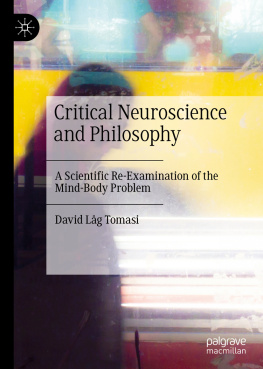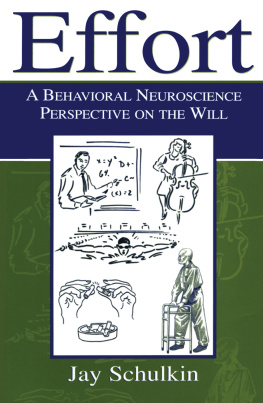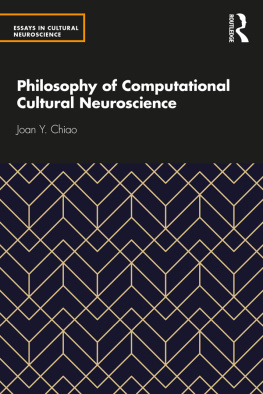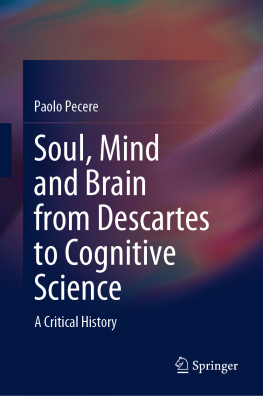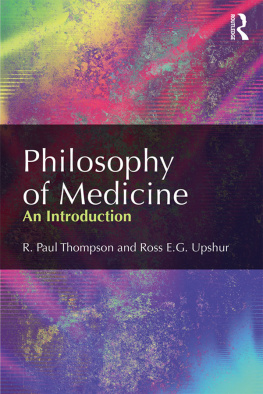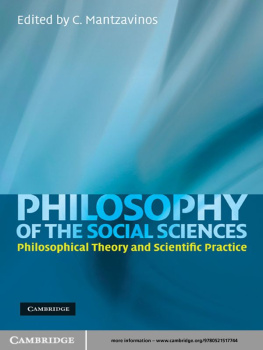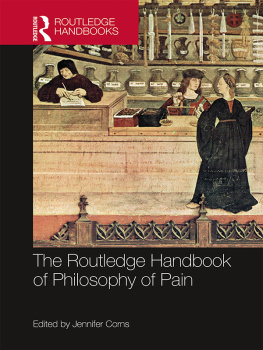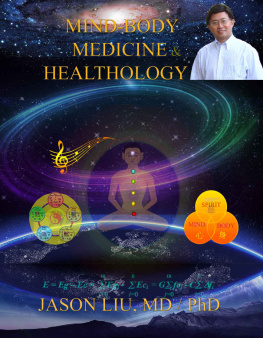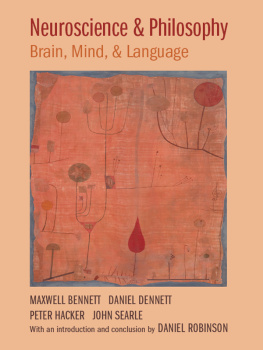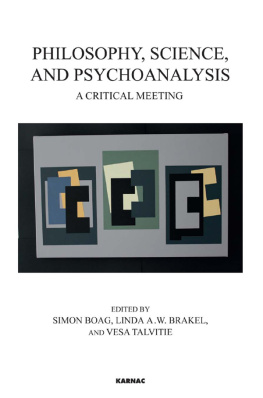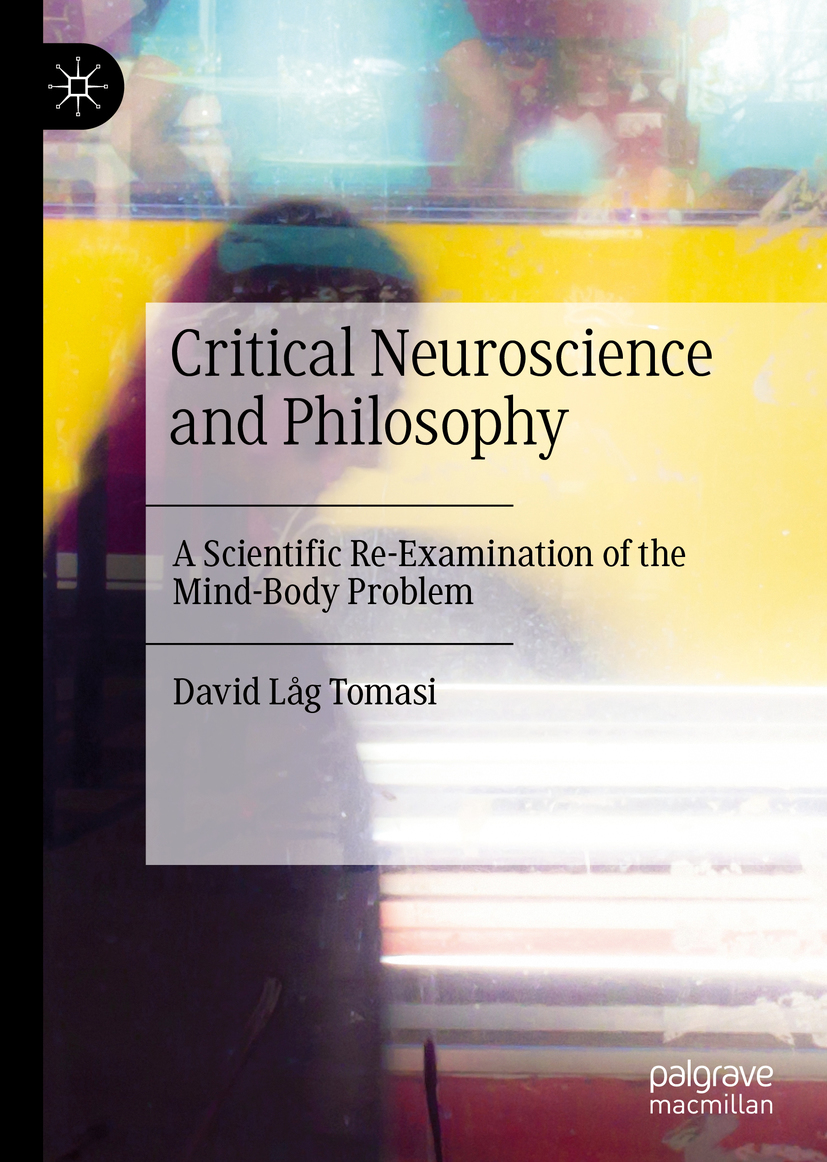David Lg Tomasi
Critical Neuroscience and Philosophy
A Scientific Re-Examination of the Mind-Body Problem
David Lg Tomasi
University of Vermont Integrative Health, University of Vermont Medical Center, Department of Inpatient Psychiatry, Burlington, VT, USA
ISBN 978-3-030-35353-7 e-ISBN 978-3-030-35354-4
https://doi.org/10.1007/978-3-030-35354-4
The Editor(s) (if applicable) and The Author(s), under exclusive license to Springer Nature Switzerland AG 2020
This work is subject to copyright. All rights are solely and exclusively licensed by the Publisher, whether the whole or part of the material is concerned, specifically the rights of translation, reprinting, reuse of illustrations, recitation, broadcasting, reproduction on microfilms or in any other physical way, and transmission or information storage and retrieval, electronic adaptation, computer software, or by similar or dissimilar methodology now known or hereafter developed.
The use of general descriptive names, registered names, trademarks, service marks, etc. in this publication does not imply, even in the absence of a specific statement, that such names are exempt from the relevant protective laws and regulations and therefore free for general use.
The publisher, the authors and the editors are safe to assume that the advice and information in this book are believed to be true and accurate at the date of publication. Neither the publisher nor the authors or the editors give a warranty, expressed or implied, with respect to the material contained herein or for any errors or omissions that may have been made. The publisher remains neutral with regard to jurisdictional claims in published maps and institutional affiliations.
Cover illustration: Alex Linch shutterstock.com
This Palgrave Macmillan imprint is published by the registered company Springer Nature Switzerland AG.
The registered company address is: Gewerbestrasse 11, 6330 Cham, Switzerland
A scientific re-examination of the mind-body problem is certainly a difficult task and Tomasi seems to navigate the rough water with a safe methodological approach. The book provides the reader with a comprehensive overview, which exhibits a remarkable balance in the presentation of disputed topics. In addition, the author provides the necessary tools to have both people with science or philosophy backgrounds acquainted to the topic.
Neuro-lovers will appreciate and learn from the presentation of the numerous neuroscience sub-branches, together with details on the methodological approaches used in the neuroscience research. Philosophers will enjoy the freedom and degree of theoretical abstraction, unusual in neurobiology books. Tomasi does in fact analyse the mind-body problem with a critical appraisal that combines the rigidness of the scientific method with the speculative insight and thoroughness of the philosophy. The combination of the two sources of knowledge makes this book a fundamental tool for those who share the need to bridge the (apparent) gap between science and philosophy.
Another key adjective for describing the book is multidisciplinary. The author spans from logic to quantum mechanics, from medicine to informatics, from religion to ethics, from theory to practice. In all the cases the rigor in defining critical words makes even a lay reader feel like taken by the hand during the journey.
Francesco Orzi,Professor of Neurology, Sapienza University of Rome (retired), and member of the Accademia dei Fisiocritici, Siena, Italy
Critical Neuroscience and Philosophyis impressive in many waysfrom the scope and variety of information analyzed to the inspiration that scientists, philosophers, and the wider public will find in it. Bringing together and setting apart mind and body, self and world provokes thought and evokes emotion. I read it without stopping for breath. Razor sharp till the last detail in such a difficult field as neuroscience in its relationship to existential problems.
Aneta Karageorgieva, Professor,former Chair of the Department of Philosophy, Sofia University St. Kliment Ohridski Bulgaria, and member of the Bulgarian Society for Analytic Philosophy
Critical Neuroscience and Philosophyreally resonated with me because every day at OVR I work at the intersection of the mind and body. I find myself in a feedback loop while pursuing a deeper understanding of their connection as well as how to manipulate both of them simultaneously to produce positive human outcomes. This involves looking for links between science and philosophy, emotion and reason, data and intuition. Tomasis book detailing how all of these elements are inextricably linked to one another, from a neurophysical standpoint is poignant. It is especially relevant today, not only to my work, but to how we collectively think about human factors across all fields, markets, and disciplines.
Aaron Wisniewski, CEO,OVR Technology LLC, USA
David Tomasi has written simply the book we were waiting for, the book that the current fields in medicine and psychology badly need. Human beings are an amazing paradox between mind and body. The author has written really a remarkable book about the correlation between mind and body, from a neuroscientific standpoint. Soul and matter seen by a comprehensive and critical perspective of results in neuroscientific research and epistemological issues. Particularly notable is the choice to critically discuss also the applicability of these results and concepts in clinical medical and philosophical-existential situations.
This outstanding volume offers a complete overview of theoretical information about brain, psyche, culture, bringing an ideal combination of scientific and clinical perspectives to the topic. The author had the courage to say that philosophy is a basic approach toward neuroscience and more and more to speak about subjectivity in science, in terms of the unique truth we can reach and of the unique solution we have actually available to the mind-body problem.
This book offers a paradigm shifting approach, scientifically based, empirically researched, for all professionals in search of more refined ways to conceptualize connection between mind and body, up to reach the Triple-S Model: Self, Soul, Spirit as a solving review of the fascinating mystery of our double nature, spiritual and embodied at the same time.
A book that will change the way you think, a must read that I cant recommend more highly.
Erica F. Poli, Psychiatrist-Psychotherapist,IEDTA, ISTDP Institute, EFP Group, Milan, Italy
InCritical Neuroscience and Philosophy - A Scientific Re-Examination of the Mind-Body Problem,David Tomasi takes on a substantial task in this work on Critical Neuroscience. He presents, in an entertaining, taxonomic style, the most important areas of scientific inquiry to determine the theories, methods, techniques, and technologies used in recent times to investigate the connection between neural activation and multiple aspects of human nature (p.16). His work covers a vast and complex range of topics, starting from the purely biological physicalist viewpoint, discussing the most common subfields of neuroscience that deal with the neural underpinnings of psychological processes, with special attention to the central nervous system, particularly the brain. In the same way that Michel Foucault produced an archaeology of the human sciences in his book

